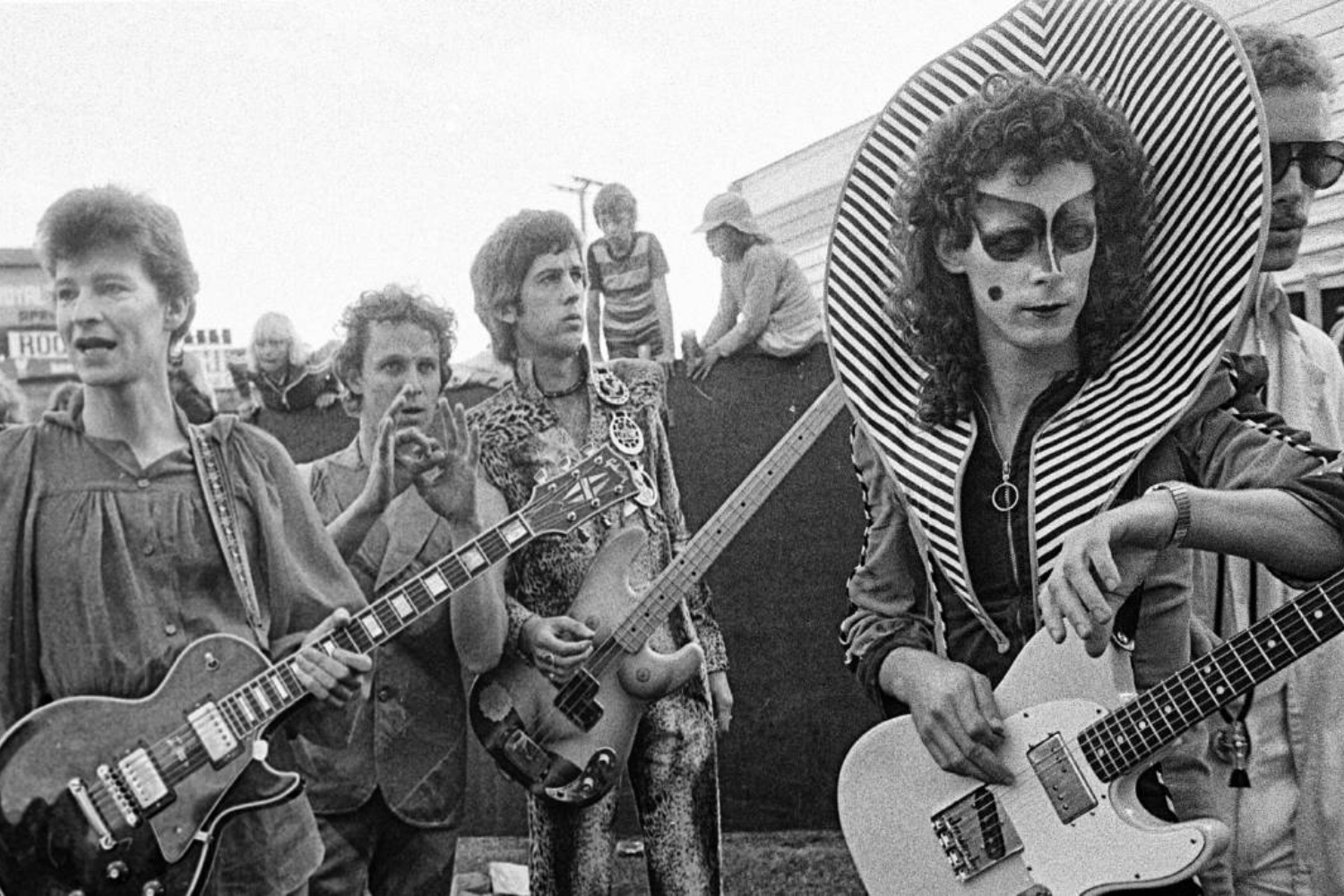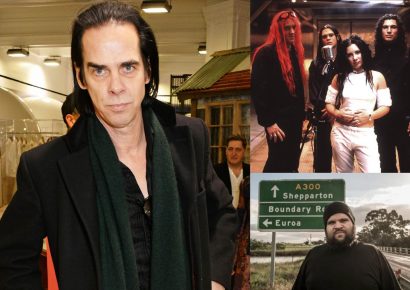Featuring The Angels, Richard Clapton, Renee Geyer & more.
It goes without saying that the ’70s was the decade that Australian rock asserted itself as a formidable global presence in music. Developments in recording and broadcast technology allowed for local acts to sing their songs on the world stage, developing legendary acts like AC/DC and Billy Thorpe and inspiring hundreds of youngsters to start soon-to-be-seminal groups of their own.
However, the ’70s Australian rock scene also produced its fair share of deep cuts which have only gotten better in the wake of time, and while many of these bands ceased to exist decades ago, the legacy of their music lingers still.
Today, we’re diving into some of the best deep cuts of this era, celebrating Australia’s musical beginnings and the awakening of a rich, creative national industry.
Summary
- Thanks to events like Sunbury Music Festival, Australian rock bands began to adopt a new musical identity that was unique from anything else happening in the world at the time.
- Throughout the ’70s, local groups explored everything from hard rock and prog through to soul, proto-punk and more.
- In contrast to the biggest singles of the era, deep cuts such as these tracks help us to gather a more precise overview of just how diverse Australia’s musical scene was in this era.
Read all the latest features, columns and more here.
10. ‘Seasons of Change Part 1’ – Blackfeather (1971)
A staple of the Australian progressive rock scene in the early ’70s, ‘Seasons of Change Part 1’ features a distinctive recorder riff played by the one and only Bon Scott. The song actually ended up becoming a hit for two bands: Blackfeather, as well as Scott’s band Fraternity.
The story goes that Scott had loved the song so much while recording it with Blackfeather, that he wanted to record his own version with Fraternity. While this agreement eventually complicated relations between the two bands, both versions remain highly popular among Aussie prog aficionados.
9. ‘Happy Anniversary’ – Little River Band (1977)
Belonging to one of LRB’s most commercially successful albums Diamantina Cocktail, this song often finds itself in the shadows of its slightly better-known album counterpart ‘Help Is on Its Way’.
One of the main features of this number is the buoyant, popping bassline played by the criminally underrated George McArdle. While the lyrics aren’t anything too profound, the instrumentation and production on this tune are to be admired.
8. ‘Sweet Love’ – Renee Geyer Band (1975)
Renee Geyer is simply one of the finest singers Melbourne, and potentially even Australia, has ever produced. Sweet Love is from Geyer’s third album Ready to Deal, and features an exceptionally tight band consisting of some of Melbourne’s most esteemed session musicians of the era.
The timeless jazz-funk vibe of this song makes it so quintessentially Melbourne, that if you heard it covered at the Toff on a Wednesday night, you’d probably think it was a new release.
7. ‘Marseilles’ – The Angels (1978)
“Bought me a box of French cigars, bought me a black beret/Get my French from a girl next door, teaching me night and day” — the lyrical candour of the late, great Doc Neeson really comes to the fore in this track, as he dreams about an ideal life in the “south of France”; one filled with blackjack, whiskey and jet planes.
The song comes to a temporary lull, before being brought to a soaring close by Rick Brewster’s melodic guitar outro. A true highlight in the Angels’ catalogue.
6. ‘Howzat’ – Sherbet (1976)
Penned by keyboardist Garth Porter and bassist Tony Mitchell, this is a record that probably featured in every household’s vinyl collection in the late ‘70s. Porter’s crawling Clavinet playing locks in sublimely with Mitchell’s bass, while Daryl Braithwaite’s watertight vocal harmonies sit beautifully over the top.
This comes down to Richard Lush’s finesse as a producer; after all, what else would you expect from someone who spent hundreds of hours in the company of George Martin and The Beatles during the Sgt. Pepper sessions?
5. ‘Down Among The Dead Men’ – Flash and the Pan (1978)
Flash and the Pan were comprised of ex-Easybeats alumni George Young and Harry Vanda, and are considered by some to be the best Aussie songwriting duo of their generation. With tunes like ‘Friday On My Mind’ (1966) and ‘Love Is In The Air ‘(1977) already under their belts, they applied the same songwriting craftsmanship to their 1978 self-titled debut album, while imbuing a slightly Elvis Costello-esque new wave vibe.
Young’s eerie deadpan vocals and whistling organ on this track are complemented by Vanda’s rolling acoustic guitar, both of which really make you feel like you’re sailing through a wild storm on the mid-Atlantic.
4. ‘Deep Water’ – Richard Clapton (1977)
Little is known about the immensely private Richard Clapton, whose real name is unknown, and whose stage name is derived from the surnames of two very famous British guitarists.
Clapton was inspired to begin work on 1977’s Goodbye Tiger after seeing Hunter S. Thompson at the Sydney Town Hall the year before. He then flew to Denmark, where a severe blizzard forced him to stay home and smash out the rest of the songwriting.
‘Deep Water’ showcases Clapton’s skills as a lyricist — lines such as “Sitting out on the Palm Beach Road/I’m so drunk and the car won’t go” demonstrate the Gonzo influence on his lyrics.
3. ‘Breakfast at Sweethearts’ – Cold Chisel (1979)
The penultimate track on the album of the same name, ‘Breakfast at Sweethearts’ is a ‘toast’ to the best café breakfast in Kings Cross. Songwriter Don Walker regularly ate at Sweethearts, who described it as being situated in the midst of strip clubs and sex shops, regularly frequented by pimps, drug dealers and the “lost and lonely debris of the night”.
Walker’s sauntering organ and piano work gives the track an inimitable sense of looseness, while Phil Small holds things together with some bass playing of the highest order. Jimmy Barnes gives us a naturally searing vocal performance, on what may be Chisel’s finest and yet most underrated track.
2. ‘My Family Tree’ – Tin Tin (1970)
Tin Tin were a short-lived duo consisting of Steve Kipner and Steve Groves, who collaborated closely with good friend and producer Maurice Gibb of the Bee Gees.
The duo earned a US Top 20 hit with ‘Toast and Marmalade for Tea’, which also reached the Top 10 in their native Australia. Stemming from the same self-titled album, ‘My Family Tree’ (which was infamously sampled by J Dilla on his 2006 swan song Donuts) is a prime example of how to fit as much quality as is possible into two and a half minutes.
The chord progression and structure is on a par with some of McCartney’s best Beatles numbers, and the lyrics offer a curious insight into how, sometimes, it’s only events such as religious holidays that bring extended families together. The intricate acoustic guitar work of Steve Groves is a real highlight of this track, while Maurice Gibb’s production gives it a semi-psychedelic folk tinge.
1. ‘Carlton (Lygon Street Limbo)’ – Skyhooks (1974)
Living in the 70’s was Melbourne outfit Skyhooks’ debut album, recorded at T.C.S. Studios in Richmond. No Aussie song, in my opinion, sums up the coarser aspects of inner-city Melbourne nightlife better than ‘Carlton (Lygon Street Limbo)’. Written by bassist Greg Macainsh, we hear Shirley Strachan paint a picture of “pizza places, spaced out places” with their “grey-haired writers and drunken fighters”.
While the lyrics are packed with observations virtually every Melbournian can relate to, it’s worth paying attention to Ross Wilson’s impeccably slick production on this album, and on this song in particular.Many musos, bar Zappa, steered away from using xylophone on rock tracks — Skyhooks and Wilson, however, pulled it off with a flair hitherto unseen in any Melbourne studio.
Immerse yourself further within the sounds of ’70s Aussie rock by taking a trip to the Australian Music Vault in Melbourne.

